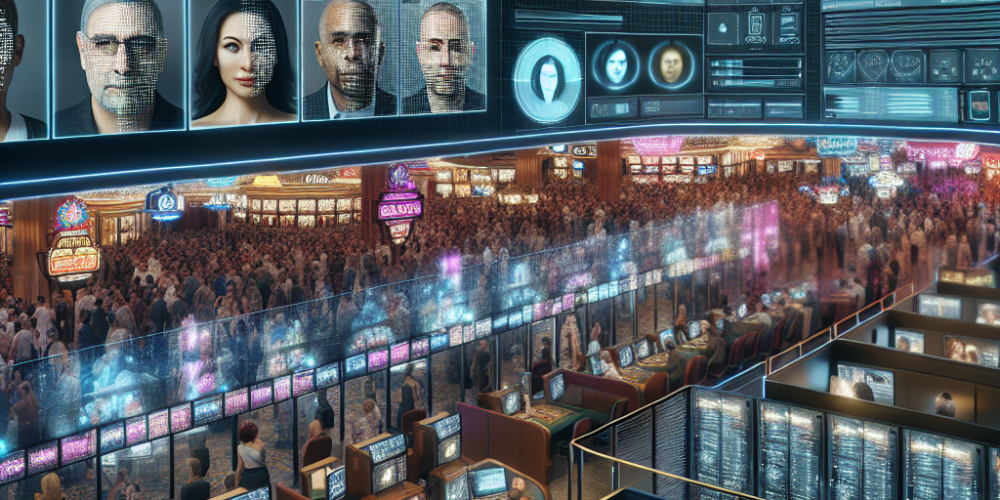Xallient has introduced advanced facial recognition technology, ready to be integrated into slot machines, marking a transformative step for Las Vegas casinos as they aim to enhance their operations. This technology promises to improve the resilience and compliance of casinos, while providing an enriched experience for both businesses and players.
The innovation is designed to offer real-time tracking capability, capable of monitoring nearly 100% of players targeted by casinos. At its core, the technology aims to boost revenue for land-based casinos by allowing them to gain a deeper understanding of customer preferences and needs, particularly focusing on high-value and high-paying patrons.
The technology is specifically developed to help casinos better track and understand the behaviors of these significant spenders. This enables pit bosses and management to appropriately incentivize and cater to these customers, similar to how VIP clientele are currently managed.
According to Mallika Patel, Xallient’s Vice President of Product, the technology holds significant potential for widespread adoption across land-based casinos. She expressed confidence that many properties would be interested in the product, citing the potential increase in gross gaming revenue if casinos could convert uncarded players into members.
Patel elaborated on the practicality and cost-effectiveness of the product, asserting that it would be simple for casinos to implement. The technology runs on low-cost chipsets, ensuring minimal expense while maintaining high performance. “All the hard work is being done on the camera itself. We fit this AI tech into the cameras on extremely low-cost chipsets,” she noted, highlighting the innovation’s efficiency.
Beyond just increasing revenue, Xallient emphasizes how the technology could significantly enhance player experience. The facial recognition system could allow guests and VIPs to seamlessly access designated hotel rooms and other facilities. It also holds the potential to streamline the process of applying and granting access to perks that patrons may win, automating the entire experience.
While Xallient is optimistic about the transformative impact of their technology, the ultimate success of its real-world application remains to be seen. The casino industry, highly competitive and ever-evolving, is always on the lookout for innovations that can offer a competitive edge. However, the introduction of facial recognition technology could also raise concerns regarding privacy and data protection, presenting potential hurdles in its adoption.
Critics of facial recognition in the gambling industry argue that such technology could be invasive, potentially deterring customers who value their privacy. They caution that while the benefits to business operations are clear, casinos must also consider the ethical implications of implementing such technology. Potential misuse or data breaches could lead to a loss of customer trust.
On the other hand, proponents of the technology argue that it is a natural evolution in the digitalization of casino operations. They suggest that with proper safeguards and transparency, facial recognition can be a powerful tool to enhance security and operational efficiency. The ability to quickly and accurately identify patrons could help prevent fraud and ensure a safer gaming environment.
Given the rapid pace of technological advancement and increasing competition within the casino industry, adopting innovative solutions such as facial recognition technology appears inevitable. It is crucial, however, for casinos to balance technological advancements with ethical considerations to ensure that patrons’ trust and privacy are preserved.
As Las Vegas casinos consider integrating Xallient’s facial recognition technology, they must navigate these complex issues. The technology’s ability to transform operations, improve customer experience, and potentially increase revenue could make it a valuable asset. Nonetheless, the industry must proceed with caution, ensuring that any implementation respects customer privacy and adheres to regulatory standards.
The next few years will be instrumental in determining how facial recognition technology shapes the future of the gambling industry. As casinos strive to attract and retain patrons, those that successfully integrate innovative technologies like Xallient’s could gain a competitive advantage, redefining the gaming experience for the next generation of players.

















